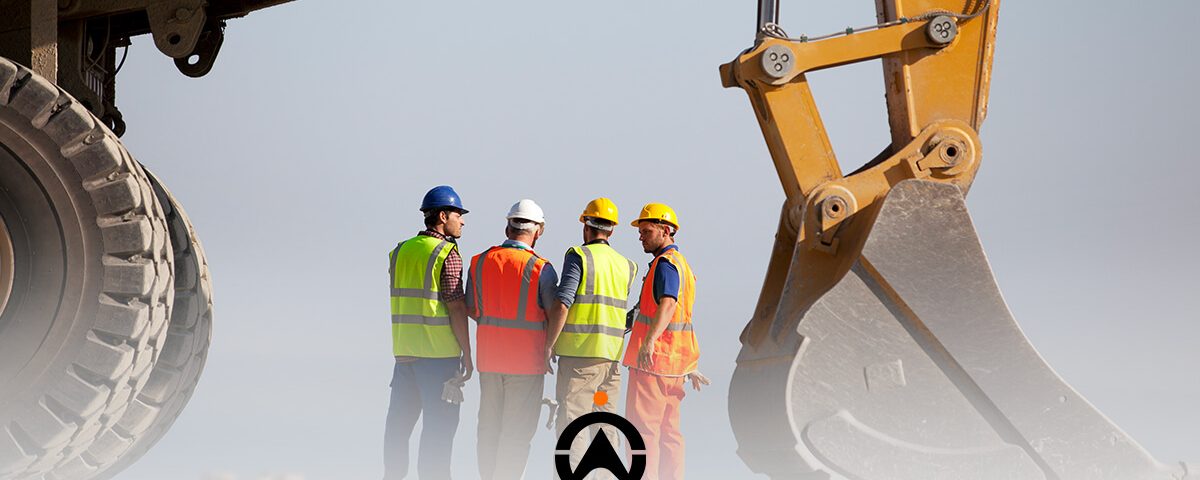How To Boost Safety In Mining – With Advanced Telematics Technology
Just like every industry, mining comes with its own unique set of challenges.
Luckily, Cartrack Namibia is the only solution you’ll need that offers numerous technological advancements to boost the safety of your mining operations.
Let’s find out how and learn more about the various solutions that keep your employees safer and your mine compliant.
In this article, you will:
- Get a good understanding of the mining industry
- Know what the basic safety requirements of the mining industry are
- Find out how telematics play a role in the mining industry
- Learn how Cartrack’s solutions will benefit your mining business
The Mining Industry Briefly Explained
The mining industry is a sector that plays a major role in our everyday lives. It revolves around the discovery and extraction of much-needed minerals from the earth like coal, metals, stone, and gravel.
As crucial as it is, mining, by its nature, involves working in harsh, hazardous environments with numerous safety risks, making it a dangerous industry with a unique set of challenges. Although safety regulations and guidelines exist to mitigate these risks and improve mining safety, ensuring compliance and enforcement remains an ongoing challenge.
These safety issues impact the well-being of workers and the efficiency and continuity of mining operations in general.
Basic Health and Safety Requirements For The Mining Industry
Mine health and safety in South Africa is governed by several laws and legislation. The primary legislation is the Mine Health and Safety Act (MHSA) of 1996. This act was designed to provide protection, health and safety to employees and other persons working in the mining industry.
Here are a few key ways it contributes to the well-being of mine employees:
- Promoting safety training and human resources
- Providing effective monitoring systems and inspections
- Ensuring that only approved personnel can access heavy machinery
- Guaranteeing that machinery and vehicles used, meet the safety standards
It is no easy task to ensure that all of these requirements are met, but that’s where a telematics solution comes in.
What Is Telematics?
Telematics, also known as fleet telematics, is a system used to collect GPS fleet tracking data along with a range of vehicle–specific information. The collected information is then stored in a database, where it can be analysed, interpreted, and compiled. This data is easily accessible for fleet managers via the software of the telematics system once uploaded.
By integrating wireless telecommunications and information technology to process, deliver actionable data, and effectively convey this information over vast networks. Telematics has now established itself as a new method of integrating all types of data, from vehicle equipment to driver behaviour.
The Main Benefits of Telematics
- Increased fleet efficiency
- Boosted efficiency with actionable insights specific to your fleet
- Amplified fleet visibility with asset-tracking benefits
- Eliminated fuel card fraud and fuel theft
- Simplified communication between drivers and fleet managers
- Improved driver safety

What Role Does Telematics Play in the Mining Industry?
Telematics technology is increasingly being employed to enhance safety, streamline workflow, and boost profitability within the mining industry. Let’s unpack a few ways of how it plays a major role in boosting safety:
- Vehicle and Asset Tracking
Telematics systems make use of GPS tracking technology, making it possible to track the location, movement, and operation of mining equipment. This helps managers keep an eye on the location, speed, and status of each asset. With access to this real-time monitoring, quick responses to emergencies, potential accidents, and theft are improved.
- Collision Avoidance
Telematics can provide incident avoidance warnings with the use of sensors and alarms that alert drivers of potential collisions. In the event of an accident, real-time tracking technology can help easily pinpoint the exact location where it occurred, making response times for assistance much quicker.
- Fatigue Monitoring
Mine workers work long hours which can leave them feeling fatigued. Telematics can monitor driver behaviour to detect early signs of fatigue and distraction and alert drivers of these events as they occur. This reminds drivers to refocus on the task at hand or to take a break so they can prevent any potentially fatal accidents from occurring.
- Geofencing
Telematics technology known as geofencing, allows you to set virtual boundaries for your equipment and receive notifications when it leaves that boundary. This helps ensure that you keep heavy or dangerous equipment in specified “safe” areas to protect your mine workers.
- Asset Maintenance Monitoring
Mining equipment requires regular maintenance to ensure that it operates at its optimum. By keeping track of machine-hours, fuel consumption, and obtaining diagnostic information, preventative maintenance is prioritised. This proactive approach ensures that downtime is reduced, breakdowns are minimised, and efficiency is boosted.
How Does Cartrack Namibia Provide Safety Solutions For Your Mines?
- AI Cameras:
This is a comprehensive camera system that allows fleet managers to remotely monitor and manage live stream footage from vehicles. The cameras help boost mining safety by:
– Providing real-time alerts: Cartrack’s AI cameras are equipped to detect dangerous or distracted driving behaviour, such as cellphone use, smoking and yawning. When these are detected, drivers are audibly alerted in real-time, allowing them to immediately correct their actions.
– Enabling proactive monitoring: By making use of AI technology, our cameras can track the position and orientation of a driver’s head and eyes. The moment the cameras detect that a driver’s eyes or head are no longer facing the road, an audible real-time alert is triggered, reminding them to focus.
– Providing event-based recorded footage: This event-based footage instantly gives fleet managers the exact footage they need readily available at their fingertips. Recording events such as harsh braking, accelerating, and cornering, helps fleet managers provide specific driver training to help drivers identify where improvements are needed, ensuring that distracted driving habits become a thing of the past.
- Access to live stream footage:
While Cartrack Namibia remains compliant with the Protection of Personal Information (POPI) Act, our system can give you access to live stream footage in special circumstances. For example, If an accident is detected and there is no response from the driver, live streaming can be initiated by the control room to assess the situation and dispatch the necessary teams to ensure employee safety.
- ADAS Technology:
Advanced Driver Assistance System (ADAS) is designed to improve a driver’s ability to react to dangers on the road or field, helping to reduce all types of accidents.
ADAS technology acts as a safety net for drivers. Human error is the leading cause of accidents, and this applies to the mining industry too. ADAS makes use of forward collision warning, which alerts drivers in real-time if their vehicle is approaching an obstacle or another vehicle too quickly. With automatic emergency braking, the technology can detect possible collisions and force your vehicle to brake, which helps reduce the impact or even prevent the collision altogether.
- Driver Scorecards:
Driver scorecards are a feature of ADAS technology that can promote safety for mine workers. Used to monitor and evaluate driver behaviour and performance, these scorecards rate each driver based on how safely they drive. The technology monitors high-risk behaviour such as speeding, and harsh accelerating or braking. By providing fleet managers with a comprehensive view of driver performance, they can provide targeted coaching and training to drivers. This ensures that driver safety is improved, resulting in reduced incidents and a safer driving culture.
- Geofencing:
Geofencing works as a location-based feature that enables fleet managers to create virtual boundaries for their assets. These geofences can be set around job sites, or even restricted areas, which enable you to receive real-time alerts when vehicles or equipment enter or exit these areas. If a vehicle or equipment operates outside of an authorised zone, an alert is immediately set off. This helps fleet managers ensure that vehicles are operating where they should be and follow up with drivers to understand why they are not in their designated areas.
- Driver ID-Tags
One of the main objectives of the Mine Health and Safety Act is to ensure that only authorised personnel have access to certain equipment. The mining industry utilises equipment that must be operated by skilled and trained workers. If this is not prioritised, the misuse of equipment can occur, posing a safety risk to the operator and mine workers. Driver ID tags are small devices that are assigned to each driver. Drivers are required to tap a sensor using their tags to operate a vehicle, ensuring only authorised drivers operate the correct equipment.
- Asset tracker
Cartrack’s asset tracking software is a GPS-based device that helps fleet managers track and monitor their equipment and assets in real time. This technology provides remote access to diagnostics. This allows fleet managers to accurately track engine hours, keep service logs up-to-date, and ensure that all regulatory requirements are met.
- Preventative Maintenance
This feature provides real-time vehicle diagnostics, helping businesses keep their vehicles and equipment in a good state with a seamless maintenance plan, providing you with real-time diagnostics.
Cartrack’s preventative maintenance provides real-time alerts of any engine faults, oil and water fluctuations, and other diagnostics that could potentially harm overall efficiency. This helps you pre-empt which vehicles need servicing, reducing the chances of equipment acting up and posing a safety risk on the job site.
- Panic Buttons
Drivers can use in-vehicle panic buttons to alert Cartrack’s control room and their fleet managers about any dangerous situations (such as riots or in-transit theft) or medical emergencies (such as a heart attack or cardiac arrest). This allows Cartrack Namibia to dispatch the necessary response teams to help ensure driver safety.

Empowering Mine Safety with Advanced Technology: Choose Cartrack Namibia for a Safer, More Efficient Mining Environment
In an industry where every move counts, you should only trust the best, and who is better than the company with over 1.85 million subscribers globally? Contact Cartrack Namibia today, and let’s make your mining operations safer, smarter, and more efficient by improving your safety culture.
P.S. Your miners and your bottom line will thank you.


